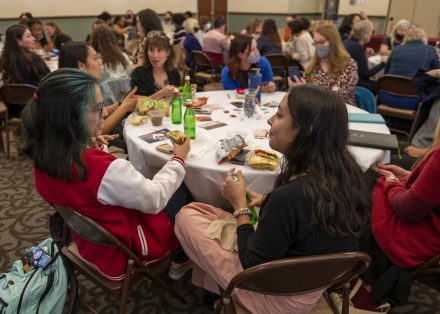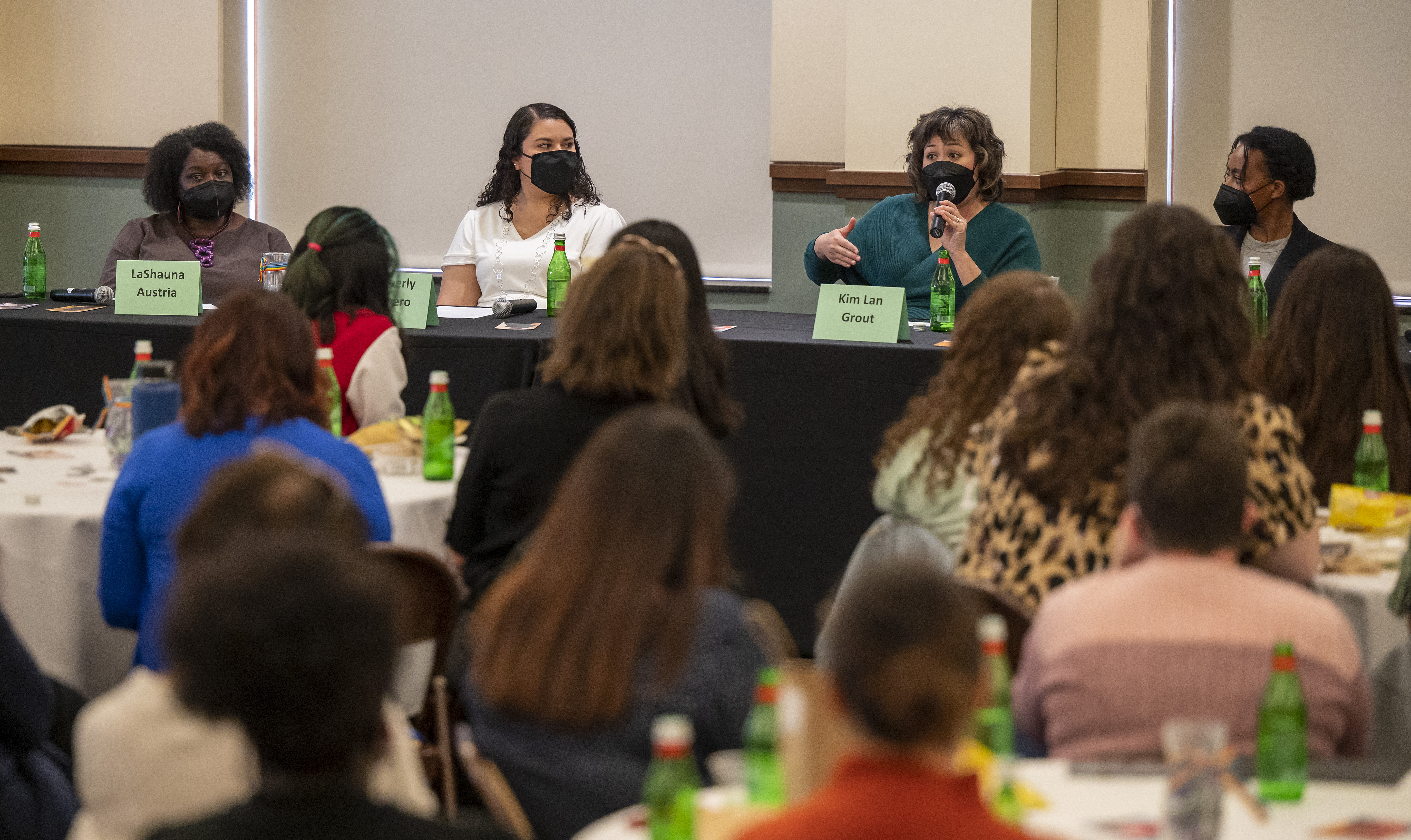Local women activists, organizers and business owners spoke about the highs and lows of their work in the community and the future outlook for the area in an International Women's Day panel.
With origins dating back to the early 1900s, before being formally recognized by the United Nations in 1975, International Women’s Day is the celebration of the achievements of women all over the globe while also focusing on issues of inequality and oppression for all women, especially transgender, Black and indigenous women and other women of color.
Dozens of Elon community members gathered in Lakeside on Tuesday, March 8, to celebrate International Women’s Day on a local scale.
“It is important for us to celebrate International Women’s Day and Women’s History Month in general,” said Becca Bishopric Patterson, associate director of the Gender and LGBTQIA Center.
“This year, we wanted to use International Women’s Day to highlight women who are activists, scholars and leaders within Alamance County,” said Shayna Mehas, visiting assistant professor of history.
Panelists for the event were Mtende Roll, Kim Lan Grout, Kimberly Romero and LaShauna Austria. They focused on this year’s themes of “breaking the bias” and “gender equality for a sustainable tomorrow.”
Roll, a trainer and organizer with the Racial Equity Institute, came to the United States in 2016 from South Africa and has connected with the Saxapahaw Social Justice Exchange, of which Austria is a co-founder.
Roll said that it was encouraging to see a community in Alamance County raising these important issues, including burnout. Roll said burnout is something she’s experienced, even at the age of 28, and could impact her ability to continue in her work for years to come without health issues.
“I’ve seen incredible women in my family, from my mother to my aunts, who just kept on this work. And I felt like, ‘Of course, I have to do it, there’s no other option. And if I don’t do this work, then who’s going to be there for me?’” Roll said.
“Now, I’m in this space of trying to accept moments of resting and how can rest be true liberation, specifically for Black women in this work,” she added.
Grout, the founder of The Redefining Disabled Project, marketing professional, journalist and disability advocate, echoed the call for rest while tackling such significant matters. With the many highs she experiences with her work, including changing the narrative of people with disabilities, one of the lows is finding time to decompress and not feeling guilty about it.
Grout told the crowd she has two young children, one of whom is a Type 1 diabetic and the other is transgender, which has presented challenges. “I’ve convinced myself that rest is in and of itself an act of resistance,” Grout said. “The lowest points were when I felt guilty like I wasn’t doing enough. But I’m so over feeling that.”
As the assistant director of admissions for diversity and access at Elon, one of Romero’s many roles is to support the needs of the Latinx community. While creating a presentation about how goals, she identified three areas of growth at Elon for the Latinx community – accessibility, appeal and visibility.

The implementation of virtual Spanish information sessions and the creation of ¡Viva Elon! have all been high points of her time at Elon.
A native of Alamance County, Romero is hopeful for the future of education in the area.
“I hope that the future in Alamance County is one that still makes me proud to call it home. I’m really excited to see where it can be in 10 years. I hope it continues to build spaces where people feel safe and heard in our community,” Romero said.
Austria, founder of Kindred Seedlings Farm, was prompted to start her farm after working in a farmer’s market in Orange County where she was the only Black person there. Realizing there needs to be Black representation in farming, a field that has been primarily occupied by White people, she started her own business by “just putting dirt in little cups.”
A friend connected her to several Elon students who wanted to be a part of what Austria had started and helped her get Kindred Seedlings Farm off the group.
“These Elon students helped me start my Black-owned farm,” Austria said. “People have said that “we believe in what you’re doing, we want you to be successful and we want this to be in our community.”
But there needs to be more than just “help” for change to occur.
Quoting Australian visual artist Lilla Watson, Austria said, “If you have come here to help me, you are wasting your time. But if you have come because your liberation is bound up with mine, then let us work together.”
“I believe that we’re in a time where women need to see that our liberation is tied together,” Austria said. “I don’t need your help, but we can work together toward our collective liberation. We can do so much more together.”



